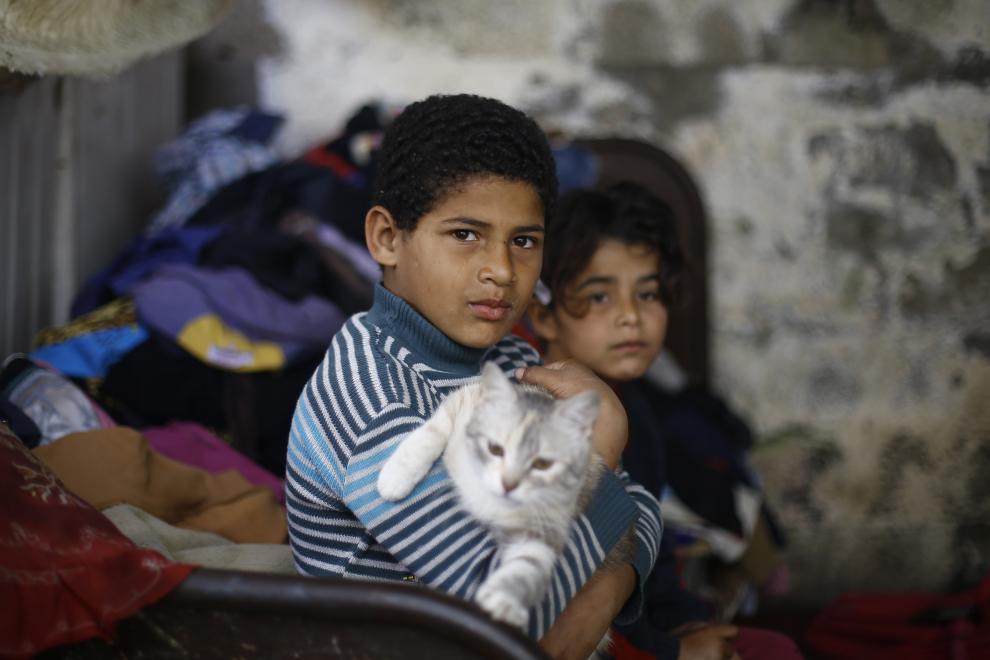
The website of Universo Paralello, the psytrance music festival that originated in Brazil, tells visitors:
“Amid the turmoil of these modern times, a window opens, an opportunity to experience something unique, radically different from the web of connections, commitments, the living wheel, the civilizational matrix of established rules to which we are subjected, in the routine of our lives.
This space is created to allow the flourishing of a great collective organism that, for eight days, will radiate the energy of freedom, delight, encounter and celebration throughout the planet.
And in these eight days of celebration, let us all be complicit in building an atmosphere of freedom and tolerance.
Of creativity and boldness and a deep respect for nature.
The utopia.
The key.
The secret.
The true gateway to an authentic parallel universe.
Once again, and always, welcome to Universo Paralello!”

Universo Paralello festival, Brazil. Source: Thuna, 2019
This festival is held in some locations outside of Brazil, including in Re’im, Israel, close to the border with the Gaza Strip.
On 7 October 2023, at least 260 people, mostly young revelers, were killed when terrorists from the Izz ad-Din al-Qassam Brigades (IQB) – a hardcore, militant affiliate, or wing, of Hamas – launched coordinated attacks against people living in communities in Israel near the Gaza border. It has been described as the worst attack on civilians in Israel’s history (Debre & Biesecker, 2023).
Missiles were launched into the concert venue and, shortly after, an estimated 50 IQB militants arrived in vans, having blown holes in the border fences from Gaza. They opened fire on the crowds at the music festival. The victims’ confusion was undoubtedly heightened by the alcohol- and drug-fueled culture at psytrance events.
In response to the attack on the concert and numerous other border communities, Israeli politicians have vowed, and begun, a swift and fairly indiscriminate revenge. The bombing of Gaza has killed more than 8000 people at the time of writing, some of whom were reportedly hostages captured during the incursion into Israel (The Times of Israel, 2023).
Young people as terrorist targets
When analysing complex social events, Donna Haraway (2004, 333-335) said we should not look to cover every aspect of a problem. We should, instead, ‘turn up the volume on some categories, and down on others’. With that in mind, I want to turn the volume up on one aspect of this awful situation – the victimising of children and young people on both sides of the conflict.
Sherwood (2023) describes the scene at the music festival as the attacks began:
“As the sun rose on Saturday, the party was still in full swing when several small black dots appeared in the sky, caught on one partygoer’s phone. As the dots came closer, it became clear they were motorised paragliders approaching from the direction of Gaza in the west.
The beat of the music became confused with gunfire as Palestinian militants stormed the festival. A siren went off, warning of incoming rockets, followed by gunshots. Some attendees tried to raise the alarm while others remained oblivious”.
This was not the first time young people attending a concert have been targeted by terrorists. On 13 November 2015, the Bataclan concert venue in Paris was targeted by Islamic State in Iraq and Syria (ISIS) terrorists during the performance of American band Eagles of Death Metal. The attack killed 90 people as part of coordinated attacks that occurred across Paris that night.
On 22 May 2017, a British born man with Libyan parents detonated a bomb vest containing nails and shrapnel at the Ariana Grande concert at Manchester Arena in the UK. Twenty-two people were killed. These attacks sparked the usual public debates about intelligence failures, the compatibility of Islam with the West and the steps needed to destroy ISIS. As is always the case following acts of Islamic terrorism in the 21st century, across the world Muslims were verbally and physically attacked in the streets, harassed on social media and made subject to media-driven public debates about Islam’s place in contemporary society (Kundnani, 2007). Muslim personalities were attacked and criticised and far-right politicians took the opportunity to further their policy desires.
In Australia in the aftermath of the attacks on Israel, a weird debate broke out about whether it was acceptable to protest Israel’s policies in Gaza in the aftermath of the attack on Universo Paralello and other near-border locations. David Penberthy (2023), writing for various News Corp mastheads, laments that there should be no moral complexity when it come to the death of babies – he argues it should be condemned without recognition of anything else, regardless of any perceptions of previous Israeli atrocities. One has to conclude there must be at least some complexity since despite many children dying in the Gaza strip at the hands of the Israeli military (see Duta, 2016: 1579), a search of the Factiva news database was unable to locate any articles where Penberthy has penned his outrage at the lack of moral complexity regarding the deaths of children in Gaza, at least not in any major Australian newspapers (indeed, five of his articles mention “Palestinians” none of which draw attention to their plight or the deaths of children, and three that mention “Gaza” again with no mention of children’s deaths. He has written 34 articles that mention “Israel” although, to be fair, a good portion of those were about the rugby player).
Terrorism is their crimes against us
‘The first thing we should note’ in any serious analysis of terrorism and its consequences, Žižek (2016: 4) claims in Against the Double Blackmail, is that attacks against Western people and cities are a ‘momentary brutal disruption of normal everyday life’.
“This form of terrorism – a momentary disturbance – tends to characterize attacks on developed Western countries, in clear contrast to many countries across the developing world, where violence is a permanent fact of life. Think about daily life in Congo, Afghanistan, Syria, Iraq, Lebanon … where are the outpourings of international solidarity in the face of the constant atrocities perpetrated there?”
As Žižek (2016, 6) argues, the privileged ‘inside’ rarely experiences the levels of violence endured in the global ‘outside’, but occasionally witness the outbursts of such outside violence in the news and on social media. But should we blame the privileged inside who watch as part of media audiences? de Botton (2014: 81) is not so convinced. What if unpalatable news simply ‘isn’t being presented to us in a compelling enough way’ or not being reported at all? How events are framed for Western media audiences plays a central role in our perspectives on international conflict and emotions we feel in response to horrific violence.
As Peter Kelly (2023) argued in this blog, with reference to Terry Eagleton (2015: 5):
“Only if you view your situation as critical do you recognise the need to transform it. Dissatisfaction can be a goad to reform. The sanguine, by contrast, are likely to come up with sheerly cosmetic solutions. True hope is needed most when the situation is at its starkest, a state of extremity that optimism is generally loath to acknowledge”.
In Slavoj Žižek’s (2023) analysis of the recent escalation of the Israeli-Palestinian conflict, he argues that our imaginations are being captured by ‘hardline faction[s]’ and ‘fundamentalists’ on both sides. It should be possible to recognise the ‘barbarism’, ‘massacres, rapes, and abductions’ perpetrated by Hamas’ terrorist groups with no ‘ifs’ or ‘buts’. Such actions confirm that ‘Hamas’s true goal is to destroy the state of Israel and all Israelis’. But this does not change the ‘historical context’ that made these attacks possible:
“A first consideration is the absolute despair that characterizes the lives of most Palestinians … Things took a turn for the worse when Binyamin Netanyahu formed a new government by allying with far-right, pro-settler parties that openly advocate annexation of Palestinian territories in the West Bank. The new minister of national security, Itamar Ben-Gvir, believes that, “My right, my wife’s right, my kids’ right to move around freely [in the West Bank] is more important than that of the Arabs”” (Žižek, 2023).
Ben-Gvir, Žižek notes, has been previously restricted from military service as he was affiliated with violent extremist organisations that were responsible for the 1994 massacre of Arabs in Hebron.
Perhaps it should be as Žižek and Lacan have encouraged – we should aim to choose the worst option and the worst pathway forward in the hope that real change might follow; a place where true hope might be possible. Luckily, choosing the worst option is something humans seem to be exceedingly good at.
But our hope should be that more moderate voices can emerge during these volatile times. There are moderate Israelis that are appalled at the violence and oppression that is perpetrated by the Israeli state just as there are moderate Palestinians that are appalled at Hamas’ actions and seek to recognise Israel and dream of a two-state solution. These voices must be heard and embraced amidst a 24-hour news cycle that adores the most extreme events and the most volatile opinions.
Young people are often victims when blood feuds break out between sworn enemies. According to UNICEF estimates in late October, 2360 children had been killed in Gaza in the first 18 days of fighting between Hamas and Israel (UNICEF, 2023). Thirty Israeli children have been killed in the fighting over this period, and ‘dozens’ are being held in captivity in Gaza. Death and injury are not the only consequences:
“Almost every child in the Gaza Strip has been exposed to deeply distressing events and trauma, marked by widespread destruction, relentless attacks, displacement, and severe shortages of essential necessities such as food, water and medicine” (UNICEF, 2023).
Cheering on this devastation, as some seem want to do during anti-Israeli and antisemitic protests and in heartless and ignorant journalism that shrieks about Israel’s right to defend itself whilst remaining silent to the deaths of Palestinian children, diminishes us all and encourages violent extremism at home.
David Penberthy is right – it shouldn’t be hard to condemn the slaughter of innocent people. We should do that, then get back to the business of working together to prevent the slaughter from continuing.
